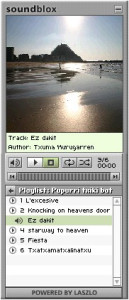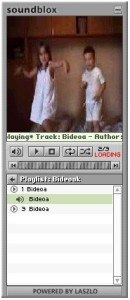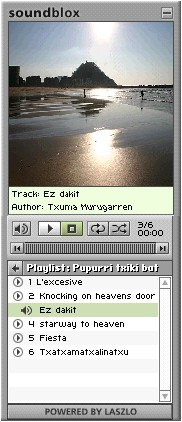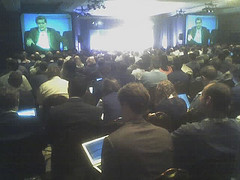SoundBlox, Remix Culture and the Digital Life
The Laszlo SoundBlox, an open source MP3 blog widget, has quietly gathered an enthusiastic following around the world since its initial release in December 2003. Just this morning, I received a note of thanks from Patxi Trapero from the Basque region of Spain, who informed us of his wonderful use of the SoundBlox, complete with a mix of acoustic music, beautiful photographs and endearing personal videos.
Patxi’s SoundBlox is another example of the human impulse driving what some call the digital life and others dub the remix culture. I find this impulse supremely humanistic and hope-inspiring. Thanks Patxi, for sharing your life, and for having the patience required to program the SoundBlox XML file! The SoundBlox of today requires substantial technical prowess to customize. In the years ahead, Laszlo Systems hopes to make this kind of digital life activity far more accessible to the world-at-large.
 |
 |
Tags: laszlo, digital life







